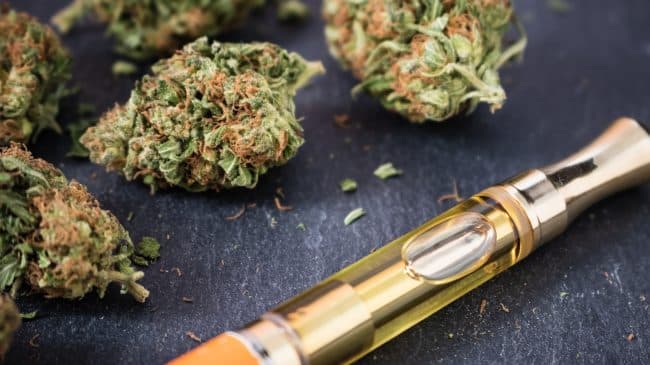Over the past year, Reason Foundation analysts have been actively engaged in helping steer the rule-making process for recreational marijuana in Michigan since the approval of Proposal 1, the state’ marijuana legalization law, at the ballot last November. So it was encouraging to see that when the state finally began accepting applications for marijuana licenses earlier this month it was able to process and approve the first application within 43 minutes.
Marijuana Regulatory Agency Director Andrew Brisbo noted that, when the state began its medical program in 2017, it took three months to approve the first application. “I think 43 minutes is a pretty dramatic improvement in turnaround time,” Brisbo said.
Indeed, Michigan has quickly become a leader in well-designed marijuana regulation, with Brisbo pursuing strategies that learn from and improve upon other states’ experiences regulating marijuana. Over the summer, the state adopted regulations to implement Proposal 1 and provide the details necessary to govern a functional marketplace out of the brief initiative. Those regulations include several important innovations.
First, Brisbo used his statutory discretion to create additional license types beyond what is called for in the initiative alone or in other states. For example, Michigan will become the first state to offer a consumption establishment license, which allows for public consumption of marijuana within a designated area if permitted by local regulations. Many states where marijuana is technically legal have struggled with figuring out how to provide tourists, convention attendees, and even renters a legal place to use legal cannabis. For these populations, the possession of marijuana might be legal, but consumption hasn’t been. Michigan has taken good steps to solve this problem.
Additional new license types include marijuana event organizer licenses and temporary marijuana event licenses. These licenses will address legal grey zones experienced at events like the Cannabis Cup, where it hasn’t always been clear if on-premises consumption or even advertisements for cannabis-related events are permitted.
Michigan’s regulatory structure even permits deliveries to both homes and consumption establishments. While several states permit home delivery, delivery to consumption establishments is an obvious innovation since only Michigan now offers that license type.
Trade samples are expressly permitted by the new regulations. In other states, it has been challenging for licensed cultivators to figure out how to provide a product sample to a dispensary it wishes to sell to, for instance. Typically, samples must be billed as a sale with a nominal sales price, such as $0.01 to allow even a small unit of weight to be transferred between licensees. Once the unit is received by dispensary, it must subsequently be purchased by an employee or owner before it can be sampled. Michigan will cut through this red tape by allowing samples to be transferred directly, without a sale and to be distributed to the receiving entity’s employees.
Michigan will also allow samples to be distributed internally to licensees’ employees for quality assurance. Most people might be shocked to learn that in other states, employees of marijuana businesses have no way to legally procure samples of their own products without going to a dispensary and purchasing them.
Michigan’s regulators specifically solicited Reason’s expertise on how to design the social equity program required by Proposal 1. The intent of social equity programs in marijuana legalization efforts has been to attempt to compensate for some of the harms imposed on certain segments of the population by the drug war. These statutory requirements tend to leave regulators wondering how they should define the populations eligible to benefit from the social equity programs and what exactly those benefits might be.
Michigan chose to define the eligible population as individuals living in jurisdictions where arrest rates for marijuana-related offenses have been statistically high. Eligible individuals will face reduced fees to procure a license to operate a marijuana business and may receive training on how to operate a business. An explicit goal mentioned within the regulations is to “promote and encourage participation in the [legal] marijuana industry by people from communities that have been disproportionately impacted by marijuana prohibition.”
Eleven states have legalized marijuana for recreational purposes since 2012. But Michigan will be the first to successfully address many of the gaps in the regulated marketplace. The state also issued its rules well ahead of schedule and is expediting the processing of applications, which in other states has been a lengthy process.
While Colorado, Oregon and other states have spawned important innovations in the legal marijuana marketplace, Michigan’s efforts are quickly becoming a model for other state governments to follow.

